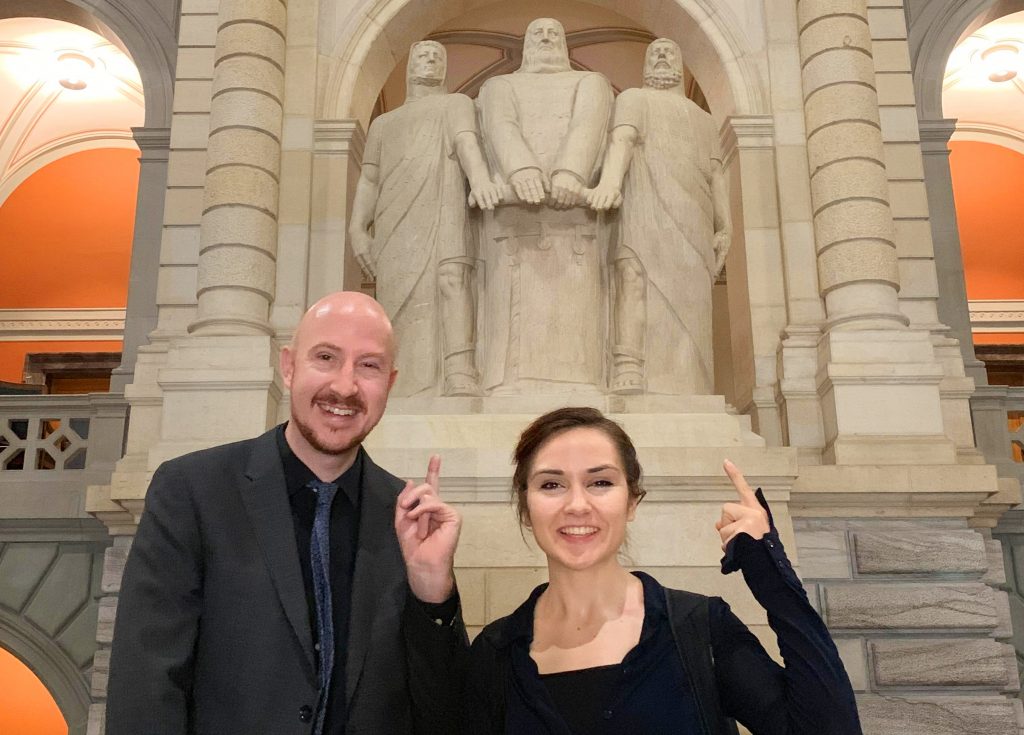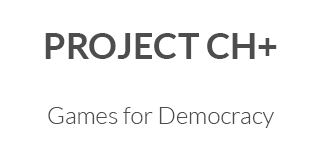Yesterday I was in the federal palace to meet Christoph Stutz from the Parliamentary Services. The Parliament Services assure that the parliament can operate trouble free, and they are in charge of the parliament’s public relations. Here too, they use games to make politics more tangible. Christoph gave feedback on our concept and a short interview on voter participation.
Within the Parliamentary Services, Christoph in an expert on political education. Almost every Thursday morning, either he, or one of his colleagues, leads school classes through the simulation game “Mon Point De Vue”. The game takes place inside the federal palace, where people debate, fight and try to find solutions – just as it happens in the national council.
After we talked about CH+, we moved on to discuss democratic participation in Switzerland.
Interview
Why do you think people should vote?
From the state’s point of view, it is important that citizens are correctly represented in the parliament. I am convinced that a diverse set of opinions and beliefs leads towards balanced politics. Also, I believe that people who complain but do not participate (even though they could) simply lose their credibility.
What do you say to people who believe, that their vote does not make a difference?
What would be the consequence, if everyone would use this argument? Nobody would participate anymore. That would be absurd. Your own behaviour should be able to be used as a rule for everyone. Just like Kant says, “Act only according to that maxim by which you can at the same time will that it should become a universal law”. By principle, the relative “insignificance” of my single vote should not stop me. On the contrary: Voting is a personal contribution to a functioning, democratic society.
1971 we had an election turnout of 56.9%, four years ago it was 48.5 %1. What do you think of voter engagement?
Of course we strive for high voter participation. It should be said that in Switzerland, voting is not compulsory – except for the canton of Schaffhausen. In my field of work, we ask our selves questions such as: Why are young people politically active but are less likely to vote? On this topic the Parliament Services recently launched the discussion platform called “Engaged youth, except when in the parliament?”(link SRF (D)).
More and more people are running for a seat in the parliament. 2015 we had 3’788 candidates and 422 lists2. These are large numbers to go through, especially if you don’t deal with politics on a daily basis. Could it be that people don’t want to vote because they are overstrained? What do you [from the Parliamentary Services] think?
We can make the counter argument that, if more people compete for a seat in the parliament, there must be more people who are interested in politics. Friends and Family of the candidates then would also be more motivated to think about voting. I wouldn’t necessarily see a connection between the amount of candidates and the turnout.
On the other hand, it is true that a lot of choices make decisions more difficult. I at least, experience this almost every day, for example when doing groceries. This would give more weight to your game idea.
With the high number of candidates, it seems easier to sign the pre-defined lists which are created by the parties themselves. What do you [from the Parliamentary Services] think about that?
We do not evaluate this as good or bad. Participation in general is important – that people open their letter in the first place. Whether voters send in the pre-created lists by parties or if they edit them first, that is up to the individual.
Do you have any suggestions on how to prepare for the parliament elections in October?
Start early! And use tools like smartvote and easyvote, they are extremely helpful. Additionally, the Parliament Services have a new chatbot, called Parli. This chatbot answers general questions about the elections.
What is your opinion on games for political participation?
Games are primarily about entertainment. Being engaged with politics always comes with a certain amount of work and effort. To combine these two aspects is a very ambitious approach which should be explored further!
Well then, we’ll do that.

(This interview has been translated from German. Original Version)
